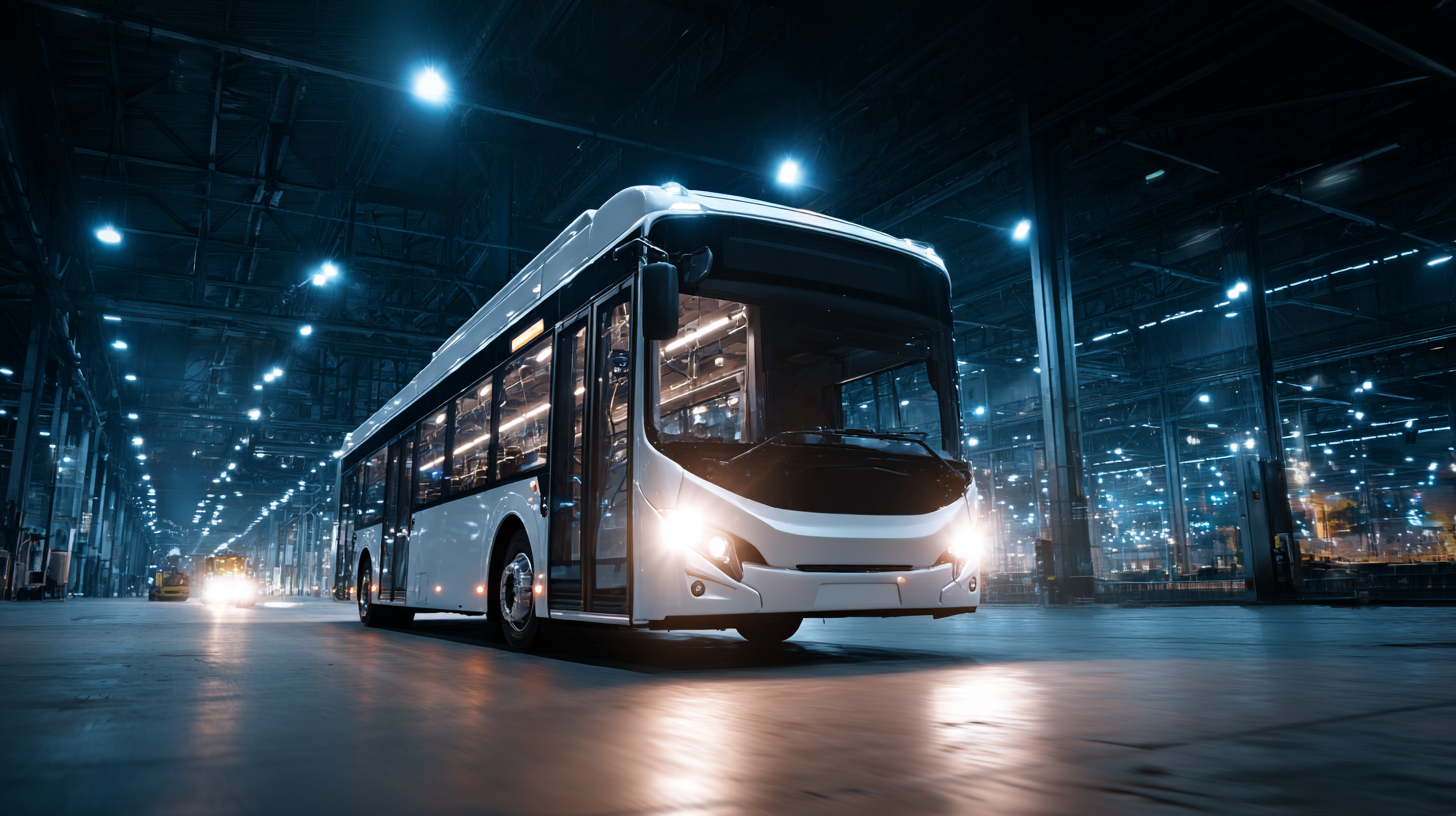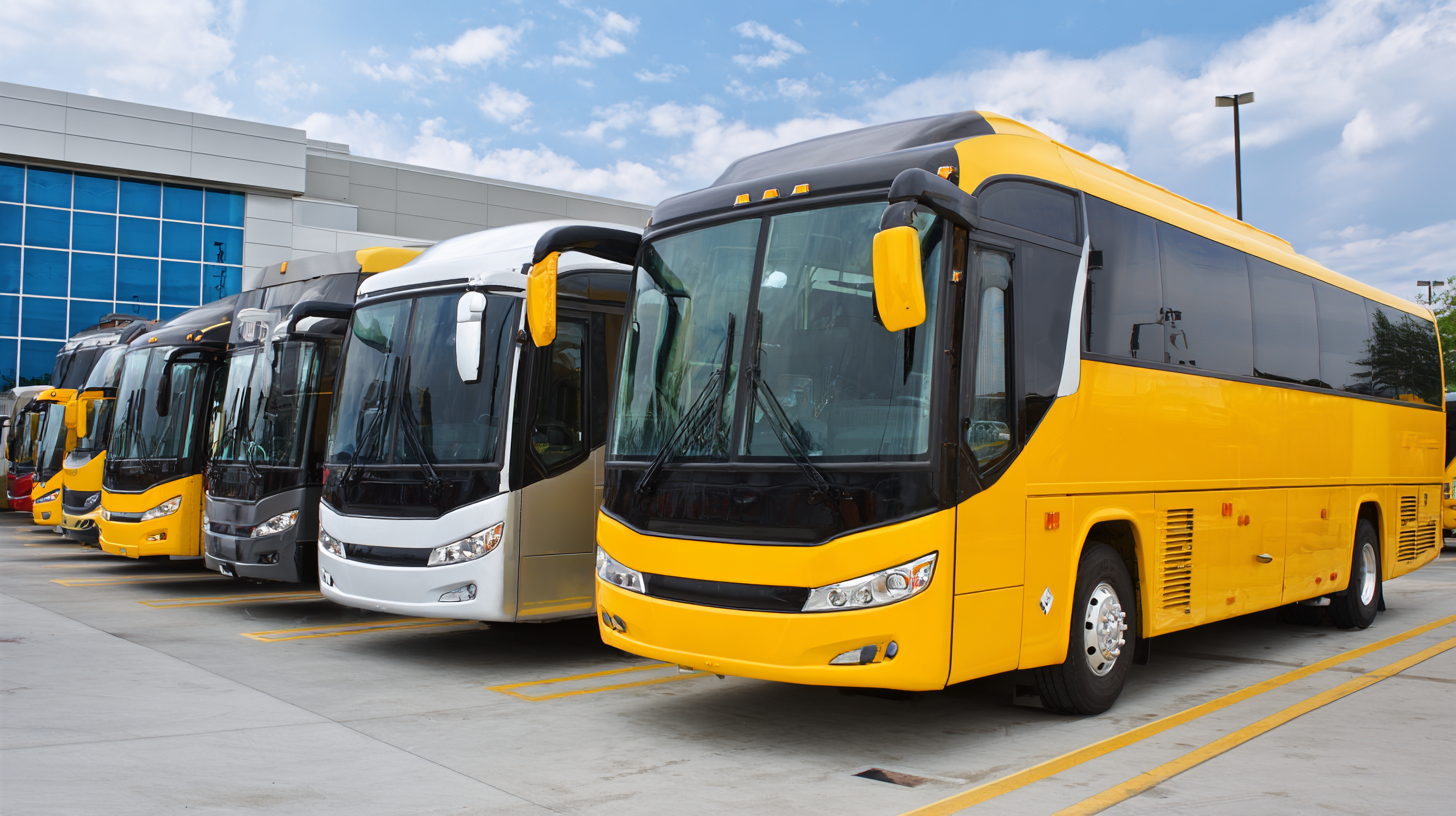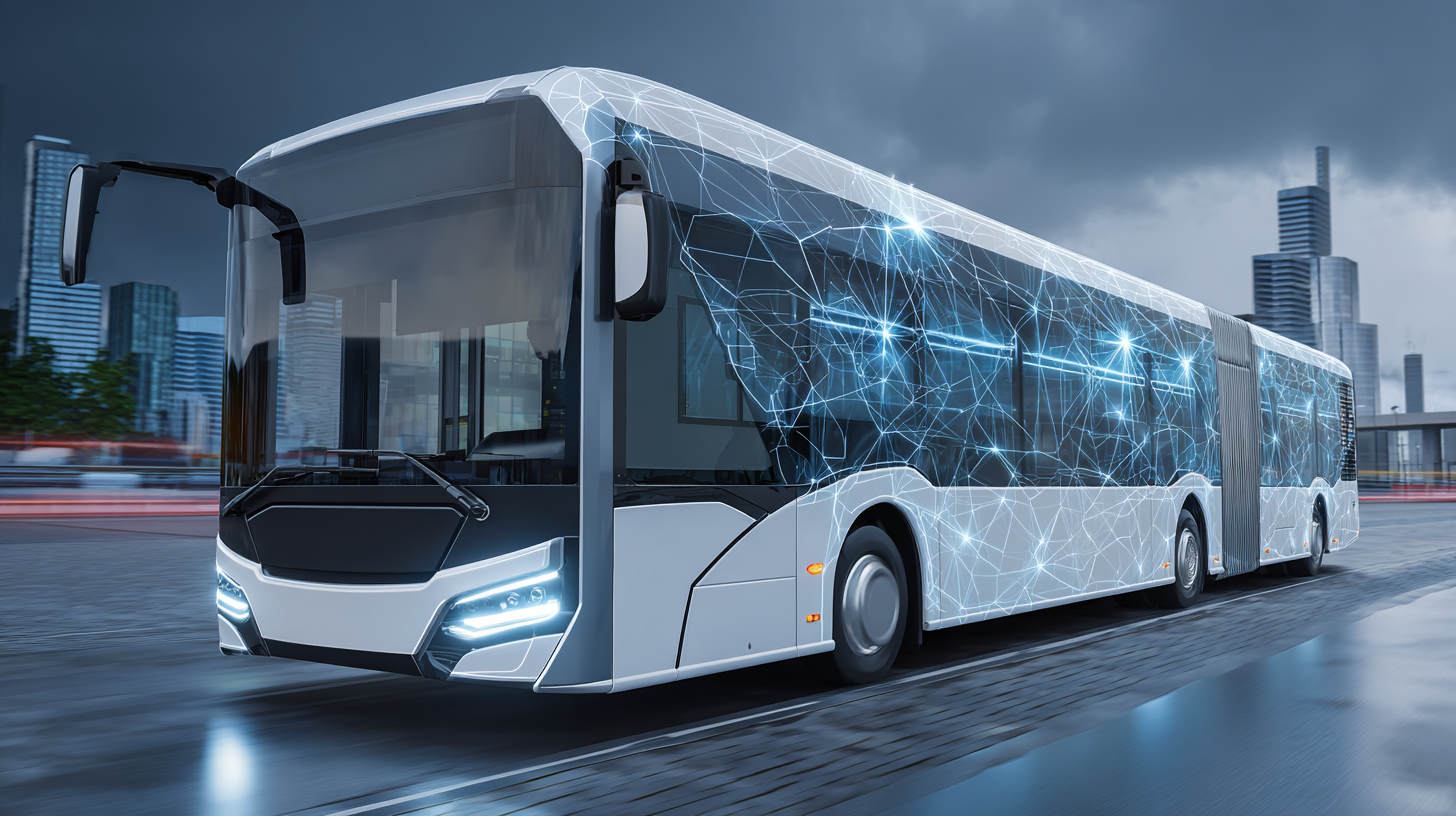Effective Solutions for Best Bus Transportation Management
In an era where urban mobility is becoming increasingly crucial, effective bus transportation management emerges as a vital component of public transport systems. According to the UITP (International Association of Public Transport), bus services account for approximately 53% of all public transport journeys worldwide, making them essential for urban connectivity. As cities grow and the demand for efficient transportation solutions rises, managers are faced with the challenge of optimizing operations while ensuring safety and reliability.

With advancements in technology and innovative product offerings, transportation authorities are now equipped with diverse tools that enhance the planning, scheduling, and monitoring of bus services. This blog explores the characteristics and applications of various products tailored for bus transportation management, shedding light on the best practices that can lead to improved efficiency and satisfaction for both operators and passengers alike.
Future Trends in Bus Transportation Management: Embracing Technology and Innovation
The rapid evolution of technology is reshaping the landscape of bus transportation management. As organizations strive for efficiency and enhanced passenger experiences, several innovative trends are emerging. One of the most significant advancements is the integration of real-time data analytics. By leveraging GPS and IoT sensors, bus operators can monitor vehicle locations, optimize routes, and predict maintenance needs, significantly reducing downtime and improving service reliability.
In addition to data-driven solutions, the adoption of mobile applications and digital payment systems is transforming how commuters interact with public transportation. Users can access real-time bus schedules, receive notifications about delays, and even pay fares through their smartphones, making travel more convenient and user-friendly. As electric and autonomous buses become more prevalent, sustainability and safety are also taking center stage. These innovations not only decrease operational costs but also enhance the overall travel experience, paving the way for a more efficient and eco-friendly transportation system.
Harnessing Big Data Analytics for Optimized Bus Fleet Operations
In today's fast-paced urban environment, optimizing bus fleet operations is more critical than ever. By harnessing the power of big data analytics, transportation managers can gain invaluable insights into their operations. This technology allows for the collection and analysis of vast amounts of data generated by various sources, including GPS tracking systems, passenger counts, and traffic patterns. By processing this information, companies can identify inefficiencies, anticipate demand, and adjust routes in real-time, ultimately enhancing service reliability and passenger satisfaction.
Moreover, big data analytics enables predictive maintenance for bus fleets. By analyzing historical data, maintenance teams can forecast potential mechanical issues before they occur, preventing disruptions and costly repairs. This proactive approach not only extends the lifespan of the vehicles but also ensures that buses are operating at optimal performance levels. Furthermore, integrating big data with scheduling algorithms can significantly improve operational efficiency, leading to reduced wait times and better resource allocation. This synergy of technology and management is transforming bus transportation into a more responsive and efficient service.
The Role of Electric Buses in Sustainable Urban Transportation Solutions
Electric buses are emerging as a pivotal element in sustainable urban transportation solutions. As cities around the globe grapple with the pressing challenges of air pollution and climate change, integrating electric buses into public transit systems presents a transformative opportunity. These vehicles not only reduce greenhouse gas emissions but also contribute to improved air quality, making urban environments healthier for residents. With the capability to operate quietly and efficiently, electric buses can enhance the overall travel experience while minimizing their ecological footprint.
Moreover, the adoption of electric buses aligns well with the growing trend of smart city initiatives. Many municipalities are leveraging cutting-edge technology to optimize public transport networks, using data analytics to monitor and manage fleet operations. By incorporating electric buses into these smart systems, cities can ensure efficient routing, real-time tracking, and reduced operational costs. This seamless integration paves the way for a robust public transport framework that encourages increased ridership and supports sustainable urban development.

Enhancing Passenger Experience through Smart Ticketing Systems and Real-Time Tracking
In today's fast-paced world, enhancing passenger experience is crucial for effective bus transportation management. Smart ticketing systems and real-time tracking technologies are emerging as pivotal solutions that not only streamline operations but also significantly improve user satisfaction. With the intelligent transportation system market revenue projected to reach approximately USD 69.64 billion by 2033, the demand for innovative solutions has never been higher. Implementing these technologies can propel transit authorities towards meeting contemporary travel expectations.
Tips for optimizing passenger experience include integrating comprehensive smart ticketing solutions, which allow seamless fare transactions and mobile access to services. Furthermore, real-time tracking, akin to the enhancements seen in cities like Hobart, Launceston, and Burnie, can empower passengers with live updates on bus arrivals and departures. Such integration fosters trust and convenience, ensuring passengers feel informed and in control of their travel plans.
As the Smart Railways market is anticipated to exceed USD 53.18 billion by 2032, adopting similar digital innovations in bus transport is essential. To remain competitive and meet evolving passenger needs, transportation agencies should prioritize investing in technology that offers both real-time updates and efficient ticketing options. This approach not only addresses current challenges but also lays the groundwork for a smarter transportation future.
Passenger Experience Enhancements in Bus Transportation Management
Implementing AI-Powered Systems for Predictive Maintenance in Bus Fleets
In the realm of bus transportation management, the integration of AI-powered systems is transforming how fleets maintain their vehicles. Predictive maintenance, fueled by advanced algorithms and real-time data, allows operators to foresee when a bus requires servicing, reducing downtime and maintenance costs. According to a report by McKinsey, predictive maintenance can lead to a 20% reduction in maintenance costs and a 50% decrease in unplanned downtime. This not only enhances the reliability of bus services but also elevates the overall customer experience.

Furthermore, leveraging AI for predictive maintenance can deepen insights into vehicle performance and operational efficiency. The ability to analyze historical data and sensor information enables fleet managers to identify patterns and anticipate issues before they escalate. A study from the American Public Transportation Association highlights that implementing AI solutions in transportation systems could improve fleet utilization rates by as much as 30%. This strategic approach not only streamlines operations but also fosters a sustainable model by minimizing waste and extending the lifespan of vehicles within the fleet. As transportation industries embrace these innovative technologies, the future of bus management looks increasingly efficient and responsive to the needs of urban mobility.




